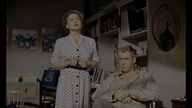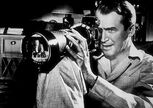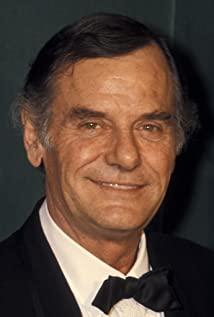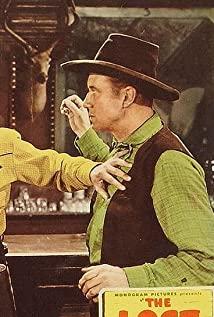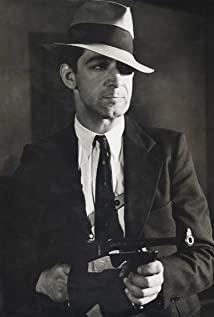Released in 1954, "Rear Window" was in the top 13 of the IMDB rankings, the highest of all Hepburn films. In my opinion, it is indeed the most entertaining one. It doesn't have the dramatic plot of ordinary people encountering mortal danger in "North by Northwest", the mysterious love story of "Vertigo", the sensory stimulation of bloody murder in "Psycho", and no "Birds". An absurd and unsolvable apocalyptic dilemma. The entire movie takes place in a daily space within 100 meters, and what the audience sees is trivial life trivial matters. But Hitchcock let us, who were bound in front of the screen, enter the world on the screen just by pushing and pulling the lens, and the huge excitement brought by the movie made us irresistible, and even remembered years later. .
Aristotle defined three ways of life in his Ethics: the life of pleasure, the life of politics and the life of contemplation. In his view, a life of pure pleasure only considers the satisfaction of personal desires and is the lowest. "Ordinary people are obviously servile, and they would rather live an animal-like life." More than two thousand years later, Aristotle's judgment on the majority of people still seems to hold true, even the so-called "elite" is no exception. But for the world of thought, desire is no longer an issue that can be easily denied and then dismissed. Going back to the theoretical context of Freud, Lacan, and Zizek, desire has become the main object of research in their field of vision. Through their efforts, the meaning of "desire" has been clarified step by step, and Hitchcock, who was deeply influenced by Freud, may have established himself as a master of suspense movies by virtue of his precise grasp of human desire.
The "rear window" is first and foremost an indispensable part of human architecture, especially modern human dwellings. Today, seemingly imposing skyscrapers are cramped cubicles in which people pay exorbitant rents and actually live a life akin to the passengers in the tail trains of Snowpiercer. The story of "Rear Window" takes place in New York in the 1950s. Compared with today's residential buildings, the apartment where the hero lives is already very human: the two opposite buildings are only three stories high, an alley and a city center. The areas are directly connected, and the small garden that the residents downstairs looks after looks warm and lovely. Although the neighbors are not close, they do communicate occasionally. From the very beginning of the film, Hitchcock uses a long shot that is long enough to go down in film history, between panning and transforming, to frame the seemingly limited physical space of the entire film. On this 100-meter-square canvas, Hitchcock opened a "rear window" with originality, making the film space realize N-dimensional expansion. Photographer Jeffery (James Stewart), who is recuperating at home due to a broken bone, cannot go to the field to take pictures as he wishes. He sits bored by the back window and spends his days peeping at the residents in the opposite building. He likes to sleep on the balcony and raise a The couple who love the puppy, do aerobic exercise every day, the social queen who is admired by many men, the sometimes melancholy and sometimes decadent composer, the newlywed Yaner's loving couple, Ms. Businessman couple who don't look so happy.
It's hard not to recall Jessie's (Ethan Hawke) whims in Love At Dawn: "I imagine the show I want to make is going to last a whole year, 24 hours a day...everyone shoots A 24-hour long documentary that captures the real life around them.” Celine (Julie Delpy) is less enthusiastic about it: “I can imagine: 24 hours of boring life plus 3 minutes of sex, and after the male lead Fall asleep immediately." In fact, she takes the desirability of the documentary content as the standard, ignoring the desirability of the act of "peeping" itself. To make an inappropriate analogy, if Celine was sitting in a movie theater watching "Rear Window", she might also be attracted by the seemingly "boring" opening. Through his vivid description of the "mirror phase" of human beings from 6-18 months, Lacan paints a unique picture of desire: our eyes are actually the largest desire organ. Peeping gives pleasure, which is too easy for modern people to understand. In the 21st century, when the online self-media is sweeping the world, people are increasingly entering the world of Lacan's discourse. People who lack real deep spiritual connections yearn to get close to the inner world of others through voyeurism: because what we see from the "rear window" is the hidden side of people, which is very different from what we see in our daily life. But the turn to peeping turned out to be regrettable.
How did the beautiful love described in the "Love Is" trilogy take root? A line from Celine might serve as an answer: "I truly believe that if God exists, he would not be any of us - not you, not me, but between us." Because of this , voyeurism cannot create romantic love, because it is not the interaction of two people, and the participant can only be the voyeur itself. Jeffery in "Rear Window" was recuperating at home for nearly a month. The scenery outside the rear window was his only solace, and his peeping became an addiction that he couldn't give up. The wonderful view from the rear window diluted his boredom, but did not take away his troubles. He is still dissatisfied with his perfect girlfriend Lisa (Grace Kelly), who is dressed in fancy clothes and elegant and refined. Lacan believes that in the process of peeping, the peeping subject will involuntarily project his own desires and imaginations onto the object. If the perception of the tenant's sexual relationship implies Jeffery's dissatisfaction with the current relationship and the expectation of an ideal partner; then the speculation about the businessman's husband murdering his wife clearly corresponds to Jeffery's anticipation of marital unhappiness and desire for an adventurous life .
Some people believe that the female characters in "Rear Window", from Ms. Lonelyhearts, social queen to Lisa, symbolize the objects of male voyeuristic desire without exception. He linked the warming of their relationship with Lisa's gradual step into Jeffery's voyeuristic vision, and believed that the film had a potential male-centrism tendency. In my opinion, such an analysis is too general and unbiased. Truffaut, the pioneer of French New Wave cinema, had such a unique comment on "Rear Window": "What shocked me is that in his films, all the love scenes are shot like murder scenes, and those murders The scenes are like love scenes..." Lisa, like nurse Stella, has extraordinary intuition. Whether it is the economic situation or the truth of the case, Jeffery and Doyle, who were originally skeptical of women's intuition, finally had to admit their intelligence. Lisa takes a risky journey to learn the truth of the case. The camera behind her flushed face from excitement and running is a close-up of Jeffery's face: what we see is a pair of eyes full of love and appreciation. It was Lisa's sharpness, intelligence and bravery in this unexpected murder that made Jeffery from "another world" fall in love with her again.
Classics remain youthful because of their repeated interpretations, and interpretations are endless because of the richness of the themes of the works. As a suspenseful crime movie, its crime is twofold: Jeffery's voyeuristic crime and the businessman's husband's wife-killing crime. In contrast, voyeurism does not seem to be a serious crime, but it is not a glorious thing. In the film, the nurse, girlfriend, and detective all criticize Jeffery's fetishes, but in the end, they become the same voyeurs as Jeffery. More fundamental than the moral principle of homicide over voyeurism is that no one can escape the temptation of voyeurism, including us in front of the screen. This is really a metaphor for Hitchcock's movie: watching a movie is voyeurism, and this voyeurism comes first in the movie itself. The screen is the back window of the cinephile, through which we peep into the works of film that were created with the aim of being peeped. How could such an art form with the original sin of "voyeurism" seriously discuss the ethical issue of "voyeurism"? At the end of the film, everything returned to a delicate balance, Jeffery finally turned his chair indoors, and lived a life of mutual understanding and accommodation with his girlfriend Lisa. But the moviegoer's journey through the rear window didn't end. Jeffery's fractured other leg was probably Xifa's humorous pardon for his movie-loving voyeurism.
View more about Rear Window reviews



